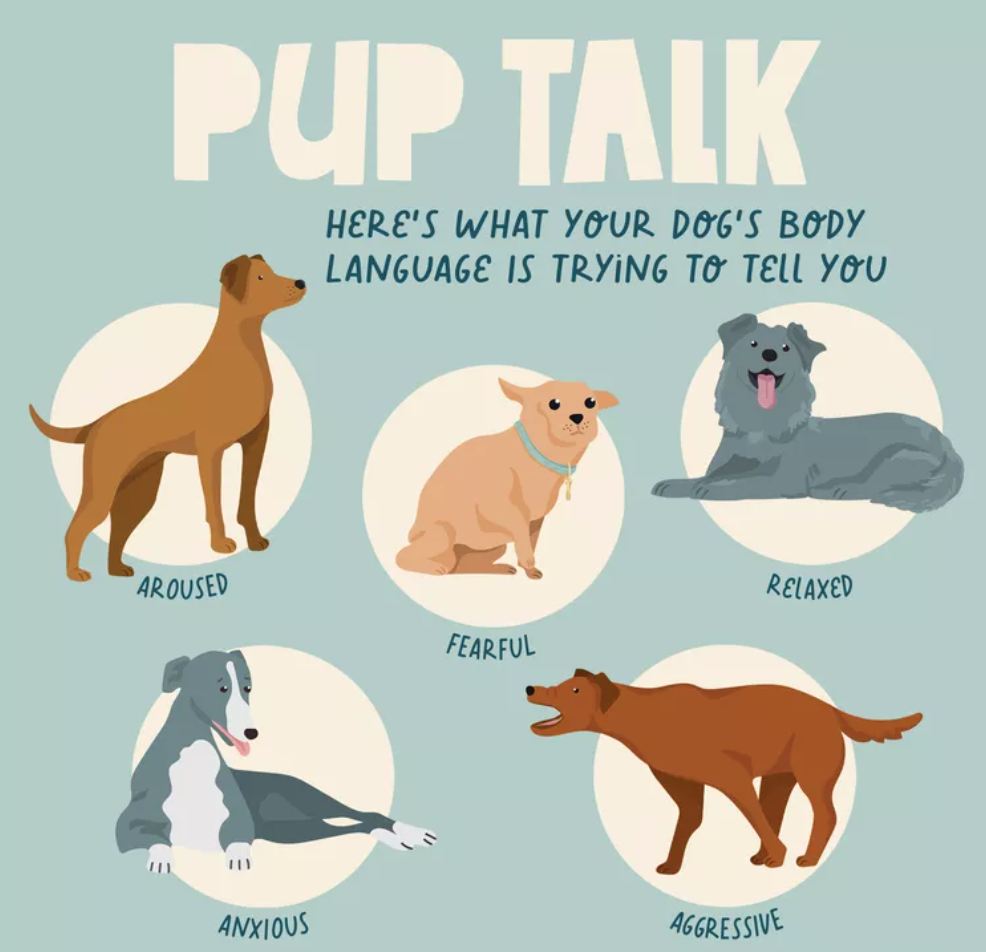Open to learn how your dog speaks to other dogs
͏ ͏ ͏ ͏ ͏ ͏ ͏ ͏ ͏ ͏ ͏ ͏ ͏ ͏ ͏ ͏ ͏ ͏ ͏ ͏ ͏ ͏ ͏ ͏ ͏ ͏ ͏ ͏ ͏ ͏ ͏ ͏ ͏ ͏ ͏ ͏ ͏ ͏ ͏ ͏ ͏ ͏ ͏ ͏ ͏ ͏ ͏ ͏ ͏ ͏ ͏ ͏ ͏ ͏ ͏ ͏ ͏ ͏ ͏ ͏ ͏ ͏ ͏ ͏ ͏ ͏ ͏ ͏ ͏ ͏ ͏ ͏ ͏ ͏ ͏ ͏ ͏ ͏ ͏ ͏ ͏ ͏ ͏ ͏ ͏ ͏ ͏ ͏ ͏ ͏ ͏ ͏ ͏ ͏ ͏ ͏ ͏ ͏ ͏ ͏ ͏ ͏ ͏ ͏ ͏ ͏ ͏ ͏ ͏ ͏ ͏ ͏ ͏ ͏ ͏ ͏ ͏ ͏ ͏ ͏ ͏ ͏ ͏ ͏ ͏ ͏ ͏ ͏ ͏ ͏ ͏ ͏ ͏ ͏ ͏ ͏ ͏ ͏ ͏ ͏ ͏ ͏ ͏ ͏ ͏ ͏ ͏ ͏ ͏ ͏

To understand how dogs 'talk' with one another, remember that actions speak louder than woofs. |
|
|
|
Part #1: Smell & Pheromones |
|
|
|
Dogs have as many as 300 million olfactory receptors in their noses (humans have a paltry six million), resulting in a sense of smell that's been estimated to be 10,000 to 100,000 times more acute than our own. Have you ever wondered why your dog smells other dogs' hind ends? Well, the truth is, the unique sent releases by a dog's anal glands (two small sacs located inside the rectum) communicates details about a pup's health, sex, diet, social status, and mood.
If you want your pup to give off the healthiest of rear-end sents, make sure to consider supplementing with Restore M3®. |
|
|
|
Picking up on a dog's pheromones may be beyond your abilities, but your eyes and ears are fully capable of deciphering how dogs use vocalizations (barking, growling, whining) and body language (posture, ear and tail position, eye contact) to communicate with other dogs. These two will need to be considered together as context matters.
A dog's observable behavior is indicative of their emotional (internal) state, so it's imperative to pay close attention to how dogs are communicating with each other and/or with you. |
|
|
|
Feel like changing the way you receive emails? |
|
|
|
|
|
|
|


No comments:
Post a Comment